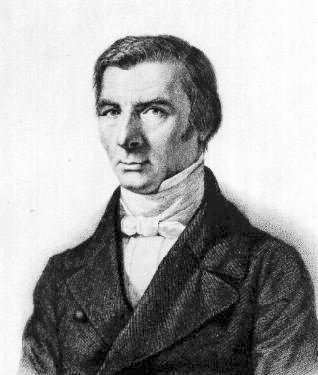

A friend who read Charley Hooper’s and my recent Wall Street Journal article, “Coercion Made the Pandemic Worse,” December 27, 2021, which I blogged about here, sent it to his son. His son, who’s a fan of Frederic Bastiat, told his dad that our point in the first paragraph reminded him of this paragraph from Bastiat’s famous book The Law:
Socialism, like the ancient ideas from which it springs, confuses the distinction between government and society. As a result of this, every time we object to a thing being done by government, the socialists conclude that we object to its being done at all. We disapprove of state education. Then the socialists say that we are opposed to any education. We object to a state religion. Then the socialists say that we want no religion at all. We object to a state-enforced equality. Then they say that we are against equality. And so on, and so on. It is as if the socialists were to accuse us of not wanting persons to eat because we do not want the state to raise grain.
I had forgotten this quote. I used a similar one from a different Bastiat reading a few years ago:
But, by an inference as false as it is unjust, do you know what the economists are now accused of? When we oppose subsidies, we are charged with opposing the very thing that it was proposed to subsidize and of being the enemies of all kinds of activity, because we want these activities to be voluntary and to seek their proper reward in themselves. Thus, if we ask that the state not intervene, by taxation, in religious matters, we are atheists. If we ask that the state not intervene, by taxation, in education, then we hate enlightenment. If we say that the state should not give, by taxation, an artificial value to land or to some branch of industry, then we are the enemies of property and of labor. If we think that the state should not subsidize artists, we are barbarians who judge the arts useless.
This is from Bastiat, “What is Seen and What Is Not Seen.” I used it here.

READER COMMENTS
Thomas Lee Hutcheson
Jan 3 2022 at 2:57am
One could just put it aside as a quirk of the past, but how odd that he seems to conflate “Socialisms” with any intervention of the state at all to promote education or equality.
Jon Murphy
Jan 3 2022 at 8:39am
That would be an incorrect rejection. Bastiat is addressing specifically the claims made by the French Socialists of his time such as Pierre-Joseph Proudhon. He’s not conflating; he’s addressing arguments made. Recall he was a member of the National Assembly and an active economist and journalist, widely publishing in both academic and popular journals. The kinds of arguments he’s discussing were widely used by socialists (much like today).
The Liberty Fund editions of his work has great biographical matter on him and background which puts his writings into context.
Mark Z
Jan 3 2022 at 10:09am
He doesn’t make that conflation. You seem to be conflating the proposition, “socialists support state-controlled education” with the proposition, “supporters of state education are socialists.” Bastiat’s remarks imply the former, not the latter.
Comments are closed.